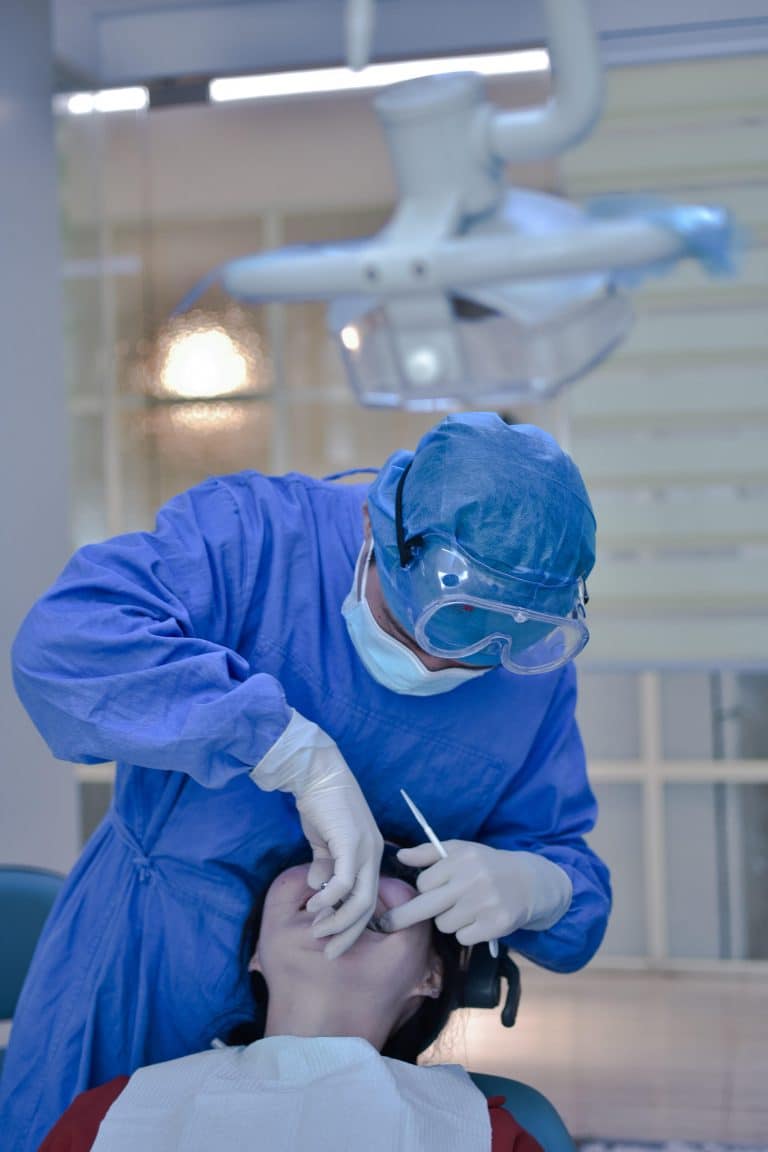There are few things worse than a dental emergency – that pain in your gums and teeth can be excruciating!
While dental pain and issues may be unavoidable in some situations, such as in the event of a sports injury or accident, many dental emergencies actually develop over time and are avoidable.
As highly skilled and experienced dentists, our team at Midland Dental Hub do our best to help our patients with preventative and cosmetic dentistry.
What is a Dental Emergency?
A dental emergency can be defined as any dental problem that requires immediate attention to save a tooth, stop bleeding, or relieve pain.
With a dental emergency, we advise not to wait to see if the issue improves, as this can lead to infection, prolonged pain and ultimately, a need to a tooth extraction.
We’ve outlined four of the most common dental emergencies in our clinic and the preventative actions you can take for them below.
Toothache
A toothache could be caused by something as simple as a nut or seed becoming lodged in between your teeth, or the pain could be a sign of something much more serious.
While this type of dental emergency may first present as an uncomfortable dull ache, things can quickly escalate to severe pain, infection or tooth decay.
If you experience a toothache, take it seriously from the beginning. Call Midland Dental Hub and book an appointment right away.
How to Avoid a Toothache
A regular visit to our team at Midland Dental can ensure any tooth decay, infections or other issues can be diagnosed and treated as soon as possible, rather than leaving the issues to become more severe. (Also Read: How Often Do I Need to Go to the Dentist)
Knocked Out Tooth
Having a tooth knocked out can be distressing, especially for a child.
This kind of emergency often occurs during local sports games, however, other accidents and even just eating hard foods can knock a tooth out of position.
A knocked-out tooth should always be treated as a dental emergency, as the tooth and mouth require immediate care to give the best chance of saving the tooth.
If you experience a dislodged tooth, follow these steps to care for the tooth:
- Do your best to find the tooth and pick it up by the crown (top of the tooth) and handle it gently
- Carefully wipe any excess dirt from the tooth to keep any nerve fibres intact.
- Attempt to re-insert the tooth back into its socket.
- If you cannot re-insert the tooth, you can transport it in a cup of milk or in between your cheek and gums on the way to see an emergency dentist at Midland Dental.
If the tooth has been dislodged or has come loose due to periodontal disease, unfortunately it cannot be saved.
How to Avoid a Knocked-Out Tooth
If you or your child play sport, dislodged teeth are avoidable through the use of a mouthguard. Mouthguards can help to protect the mouth and jaw from a number of injuries, including knocked-out teeth, chipped or cracked teeth, cut lips and tongues, and even broken jaws.
In the case of periodontal disease, tooth loss is avoidable if measures are taken to address and treat the disease early on.
Dislodged Fillings or Crowns
Crowns and fillings often become cracked or dislodged when you’re enjoying hard foods such as nuts and rock candies.
In addition, a crown or filling is more susceptible to experiencing a crack or becoming dislodged if decay has eaten away at the tooth underneath.
It is important to avoid any damage to fillings and crowns, as this can result in an exposed nerve in your tooth – OUCH – as well as opening up the inside of your tooth to bacteria and food particles.
How to Avoid Dislodged Fillings and Crowns
As soon as you notice an issue with your filling or crown, including a slight toothache, book into Midland Dental Hub to have one of our dentists check over your teeth.
Chipped, Cracked & Broken
One of the most common causes of chipped, cracked and broken teeth is sporting injuries and accidents.
In some cases, the crack may appear horrific, but the real damage occurs when the crack or chip exposes or impacts the nerve within the tooth.
If you experience severe pain as a result of a chipped or cracked tooth, contact Midland Dental Hub to organise an emergency dental treatment. (Also Read: What to Do if You Have a Broken Tooth)
How to Avoid Cracked, Chipped & Broken Teeth
As this dental emergency is most often caused through sport, the use of a mouthguard during sport can help to prevent breaks and cracks from happening.
Don’t Put Off Your Dental Emergency Treatment
When you’ve had previous bad experiences with dentists, stepping foot in another dental clinic can be daunting.
But it’s important to find a dentist you trust and feel comfortable with to ensure any dental issues don’t become dental emergencies.
Midland Dental Hub offer same-day appointments to treat your dental emergency, ensuring you can get the best dental care when you need it most.
Book your appointment with Midland Dental Hub – call (08) 6117 0616 today.

